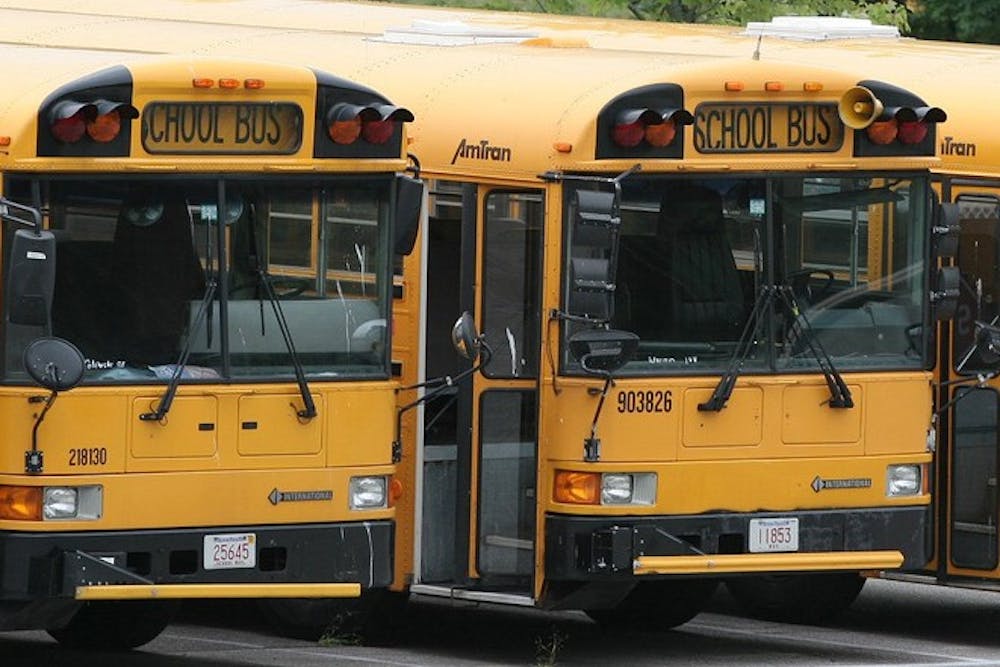
In a widely controversial debate, charter schools have recently been condemned by the NAACP and The Movement for Black Lives. | Courtesy of Alex Starr
Charter schools, a mainstay in Philadelphia and other big cities, have become one of the few national issues embraced by politicians on both side of the aisle, including President Barack Obama, Mitt Romney, Cory Booker and Donald Trump.
But recent studies by civil rights organizations like the NAACP and a scathing piece by comedian John Oliver on HBO’s “Last Week Tonight” have questioned the effectiveness of charters nationally.
The Movement for Black Lives, a group of 50 organizations assembled by Black Lives Matter, recently called for a moratorium on charter schools, stating they have worsened segregation by how the schools choose and discipline students.
Seventy percent of black charter school students nationally attend “intensely” minority charter schools, about twice as many as the number of intensely segregated black students in traditional public schools, according to a 2009 study by the University of California, Los Angeles’ Civil Rights Project.
Graduate School of Education professor Sigal Ben-Porath said charter schools often perpetuate segregation in Philadelphia in the hopes of closing the achievement gap, but result in a “back to basics” style of learning that focuses on improving standardized test scores and less on art and music.
“These charter schools are far more racially segregated than traditional public schools. For me, I think that means the charter schools are going in the wrong direction,” Ben-Porath said. “If one is to start a charter school by improving achievement but also limiting the breadth of education, then why would you do that in a school that targets minority populations? There is no good reason to narrow educational opportunities of minority communities for the sake of overcoming the achievement gap.”
Other black leaders of organizations that support charter schools have condemned the resolutions, including Dr. Howard Fuller, a longtime civil rights activist and the founding president of the Black Alliance for Educational Options, which encourages support among blacks for charters.
“You’ve got thousands and thousands of poor black parents whose children are so much better off because these schools exist,” Fuller told The New York Times.
Charter schools are often seen as popular alternatives to traditional public schools that promote choice and freedom from public school regulations and bureaucracy . The NAACP also cites the lack of accountability in private boards running schools, the diversion of limited taxpayer funds, fiscal mismanagement and corruption as contributing problems.
John Oliver gave examples of corrupt charter schools in Philadelphia, such as the Harambee Institute of Science and Technology Charter School, which received five million tax dollars and also created a nightclub on the weekends.
According to Ben-Porath, charter schools receive a significant amount of public funding since the money follows the child to pay for costs such as providing the students transportation to their charter school.
The NAACP makes the argument that since charter schools collect public funds this causes increased budget cuts and fewer resources for traditional public schools. The civil rights group has called for “full funding and support of high quality free public education for all children.”
With the increased funding from private donors and public funds, some debate whether charter schools actually are better than traditional public schools.
In a 26-state study of charter schools from the Center for Research on Education Outcomes at Stanford University, they found that kids in most charter schools are either doing worse or no better than students in traditional public schools.
Ben-Porath did not think charter schools will disappear in Philadelphia or in the United States but she said that there needs to be a federal policy effort to change and improve the trajectory of charter schools.
The Daily Pennsylvanian is an independent, student-run newspaper. Please consider making a donation to support the coverage that shapes the University. Your generosity ensures a future of strong journalism at Penn.
DonatePlease note All comments are eligible for publication in The Daily Pennsylvanian.








